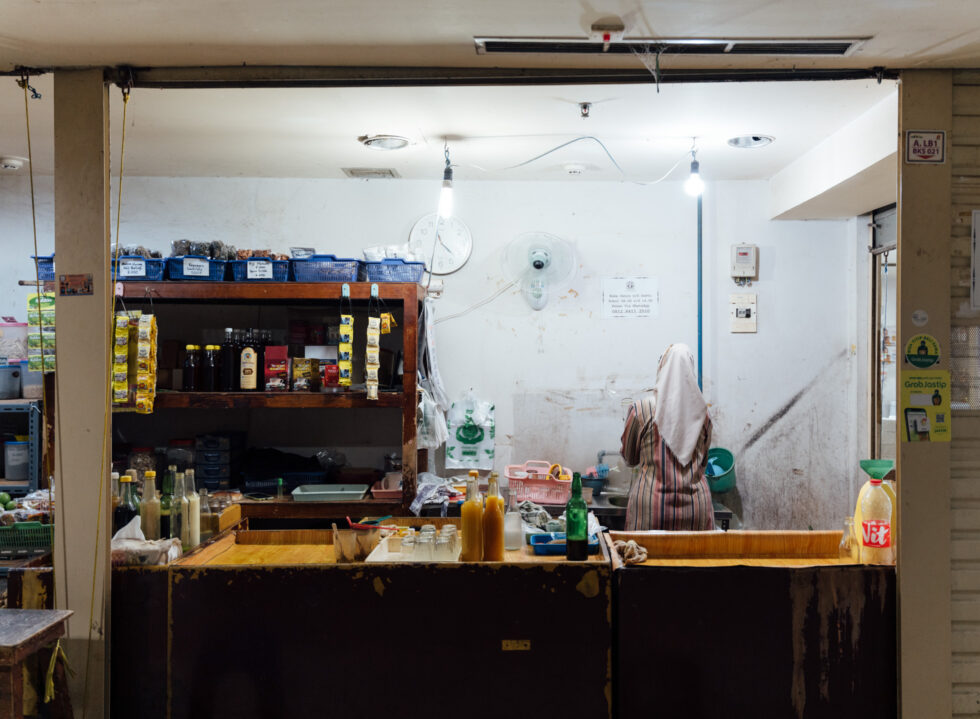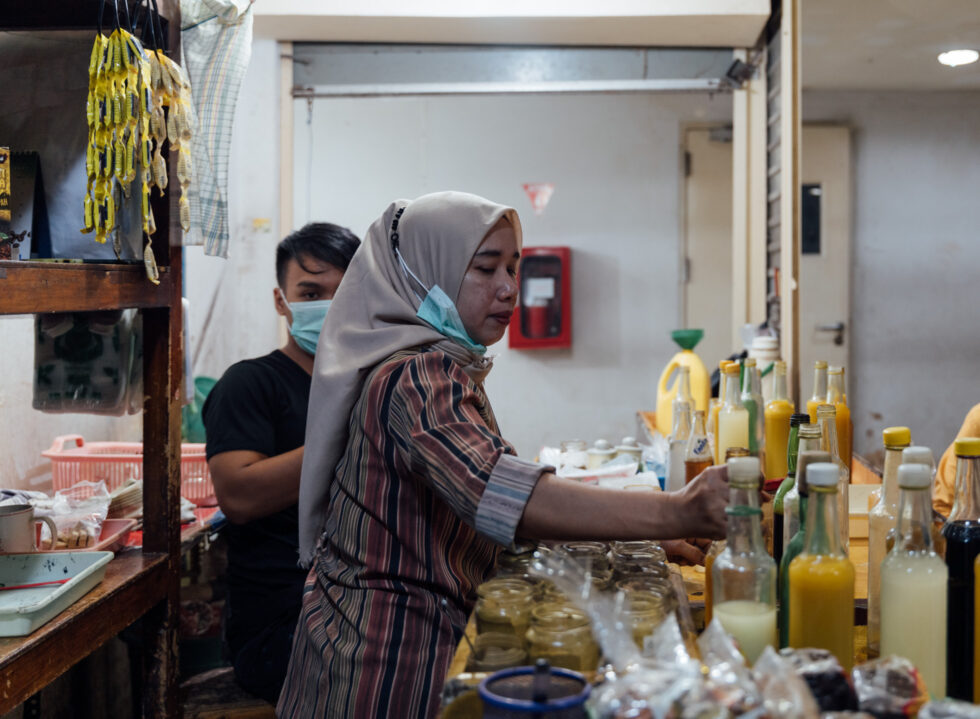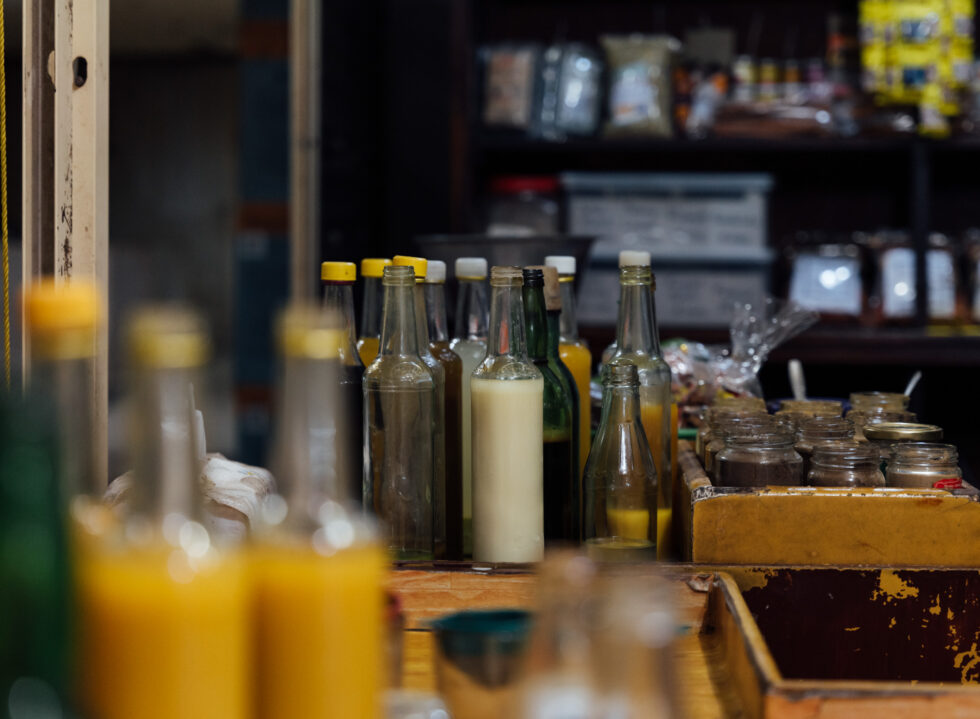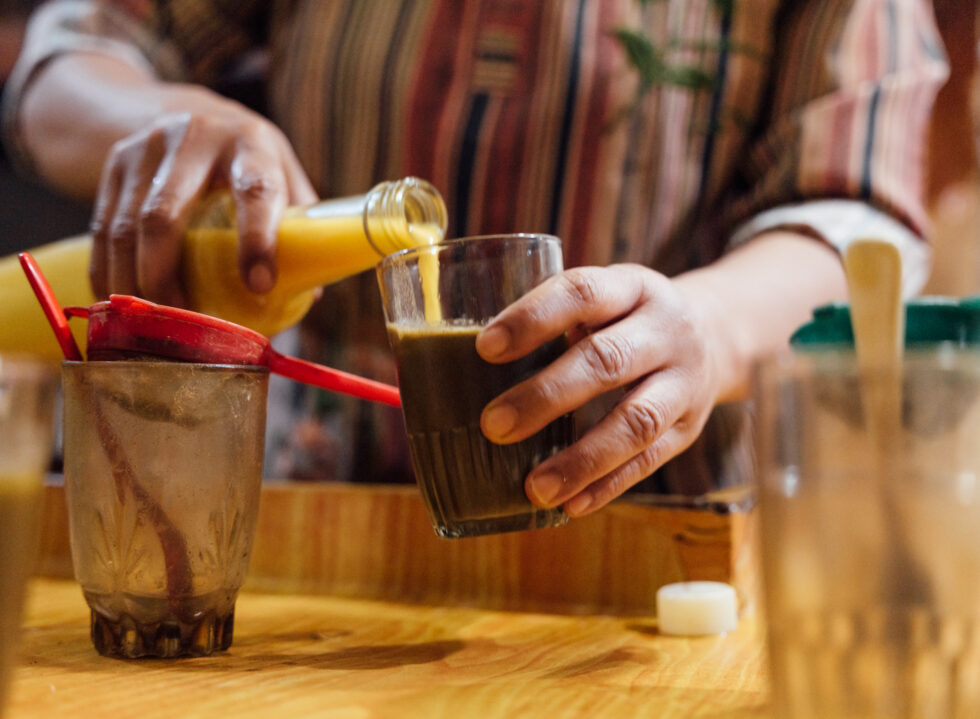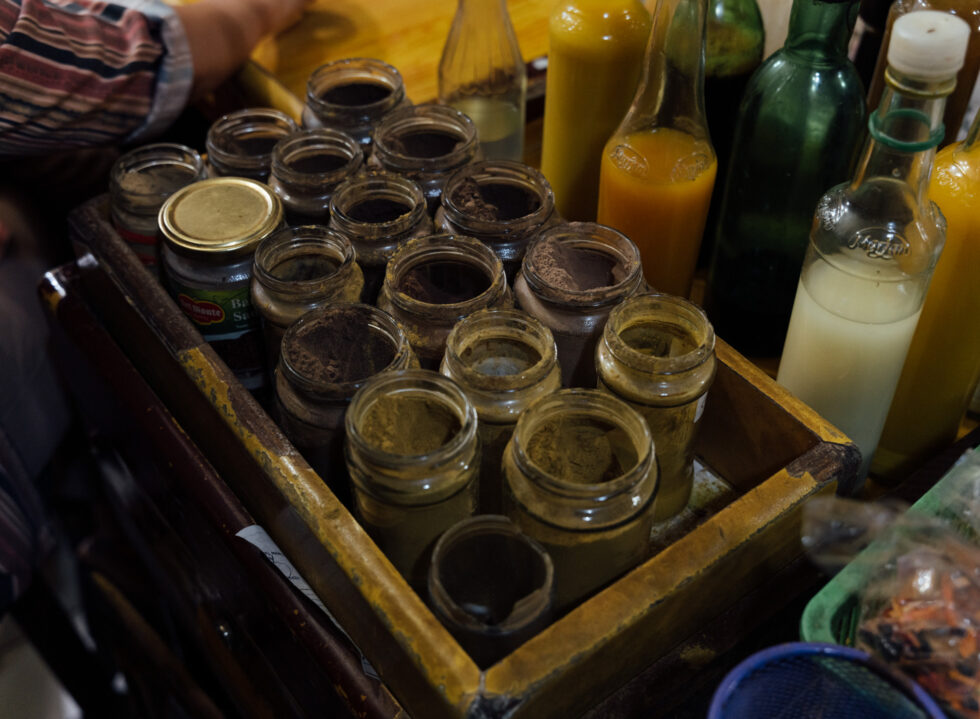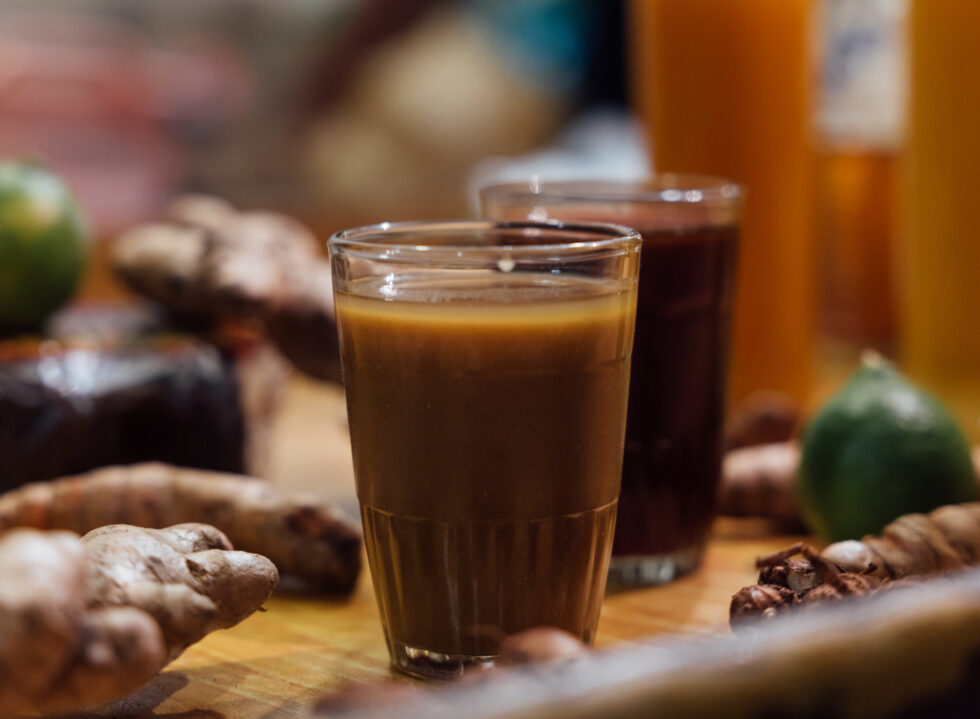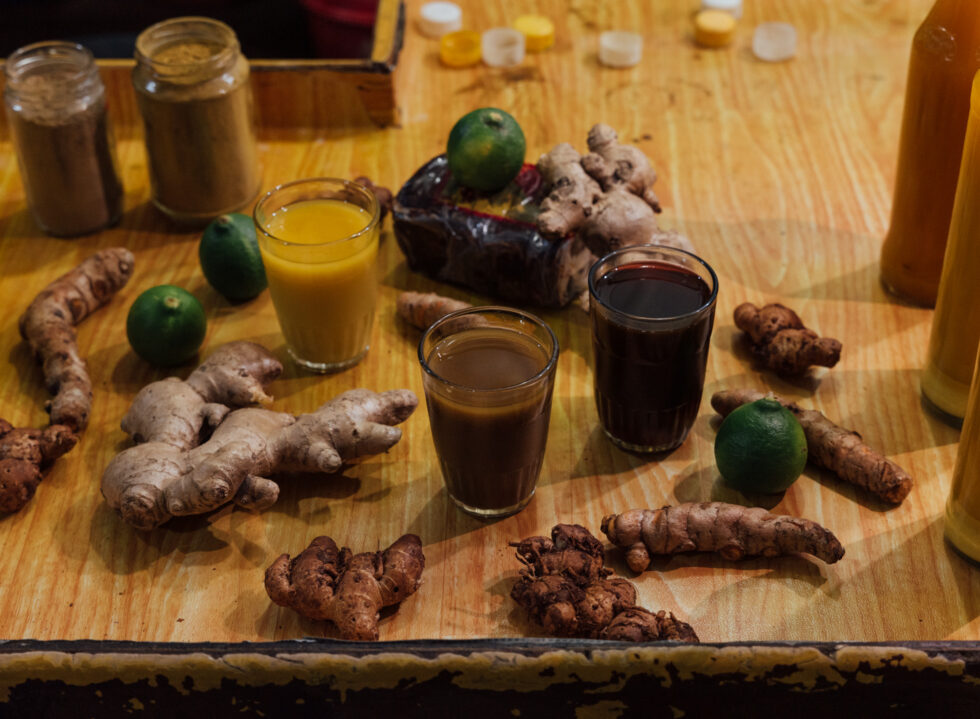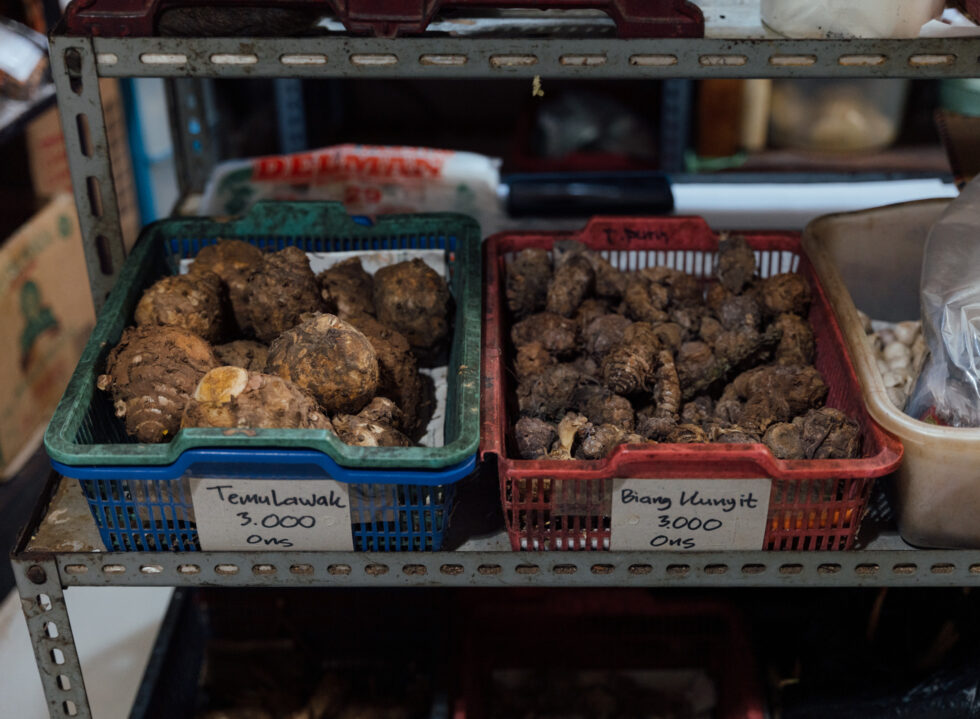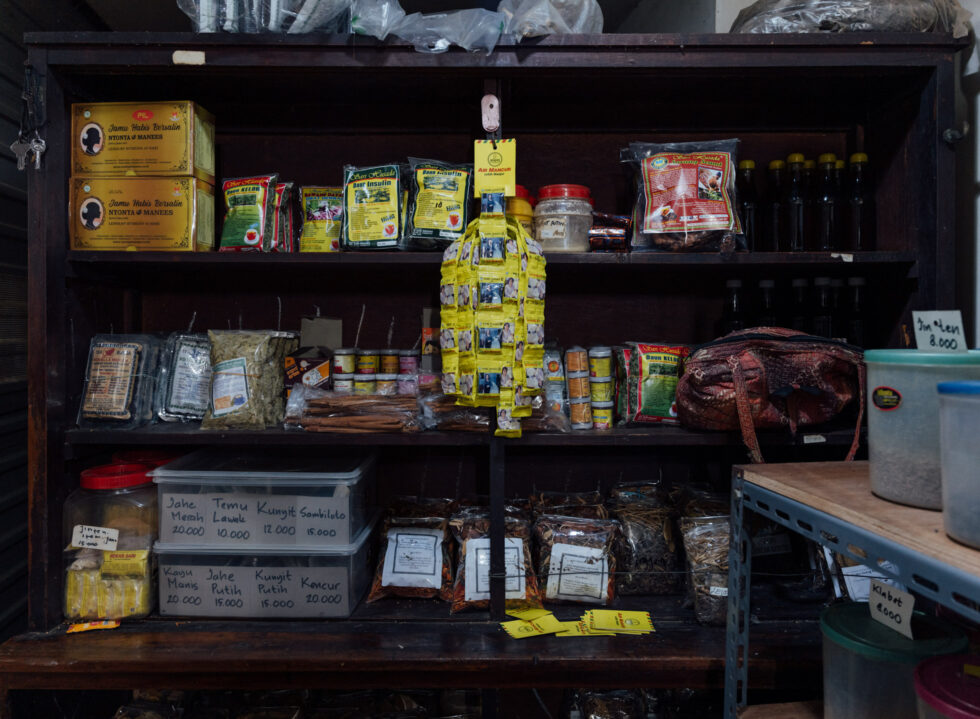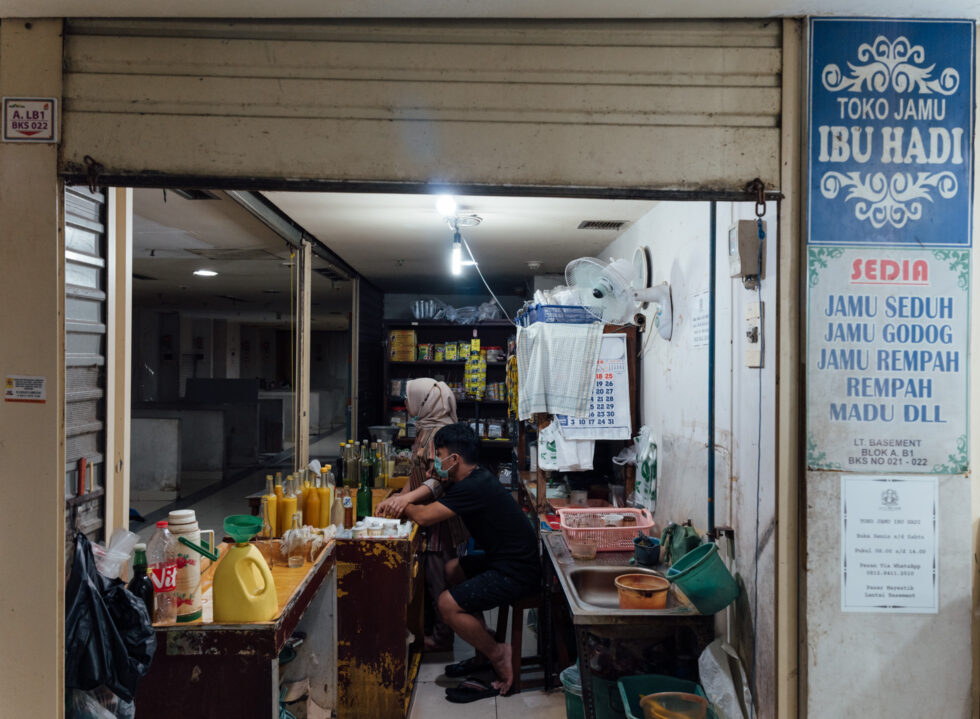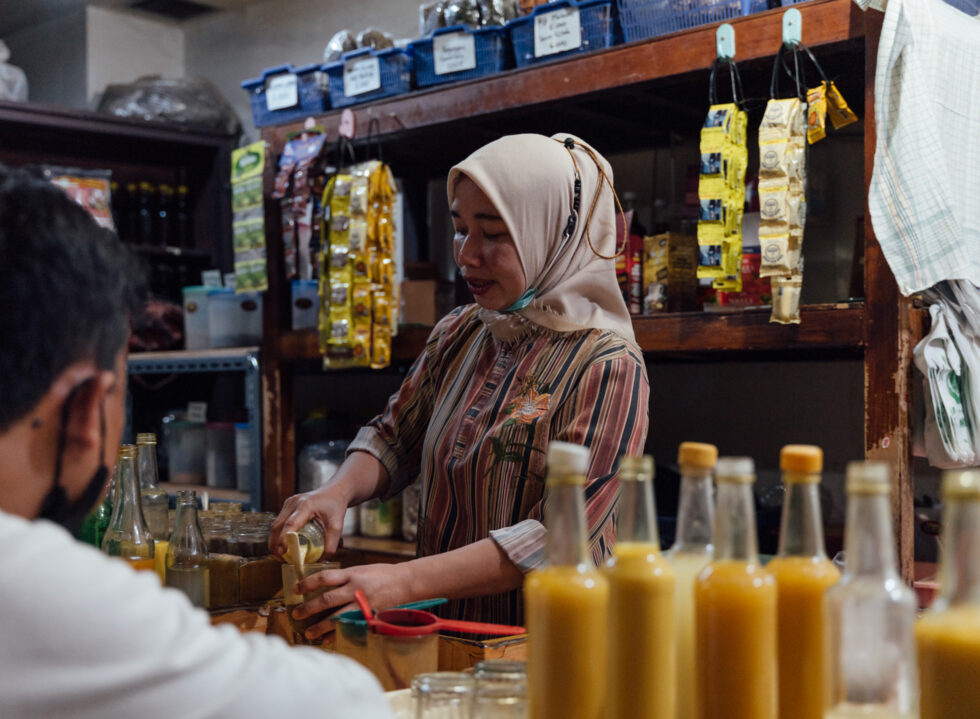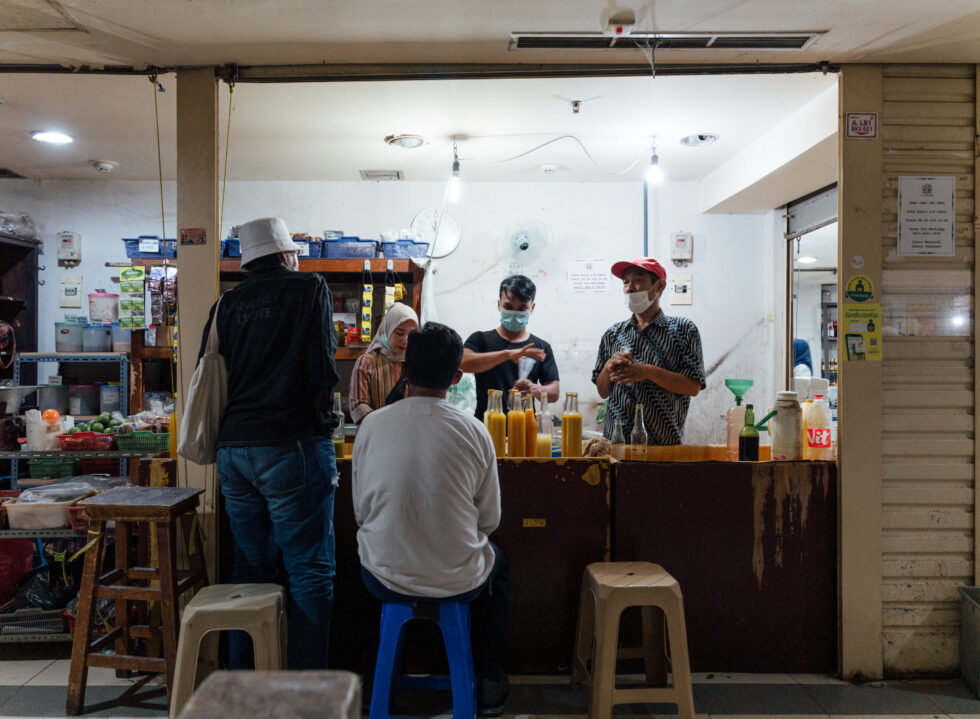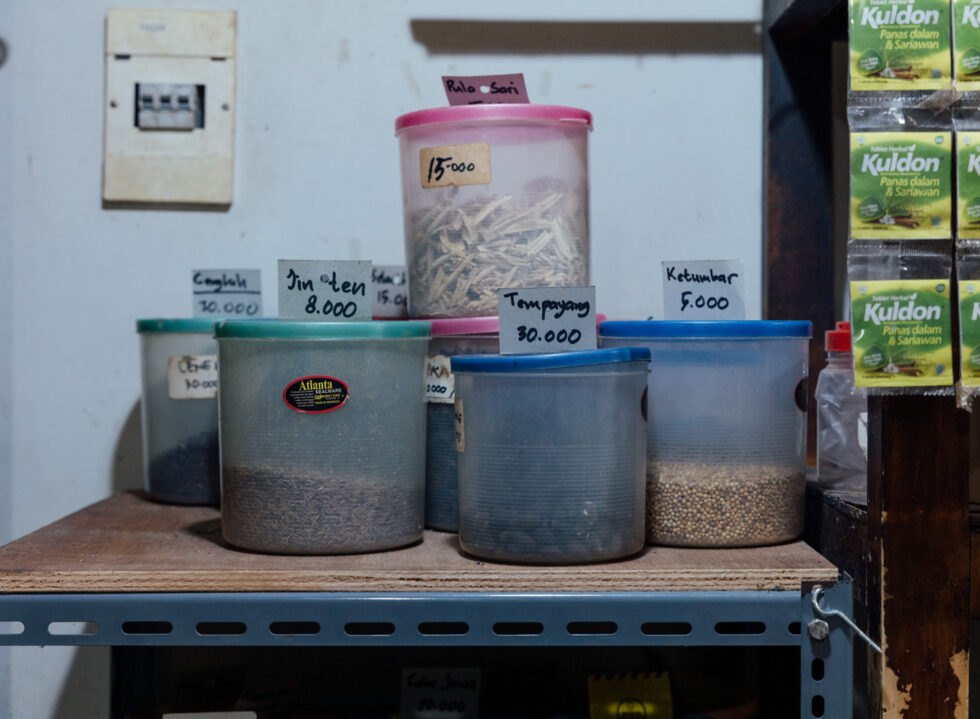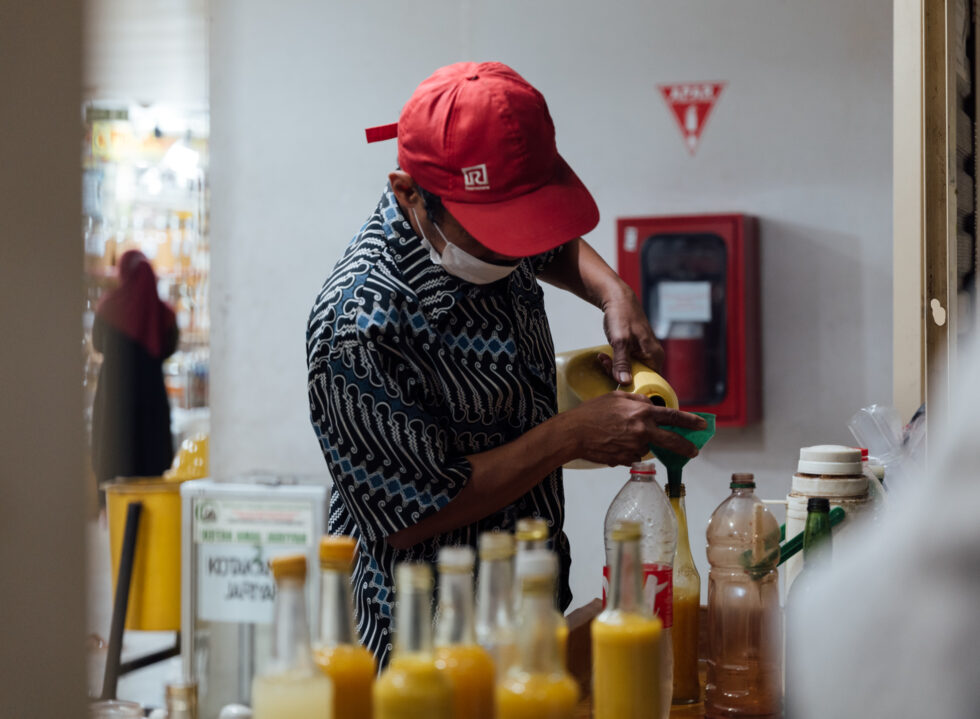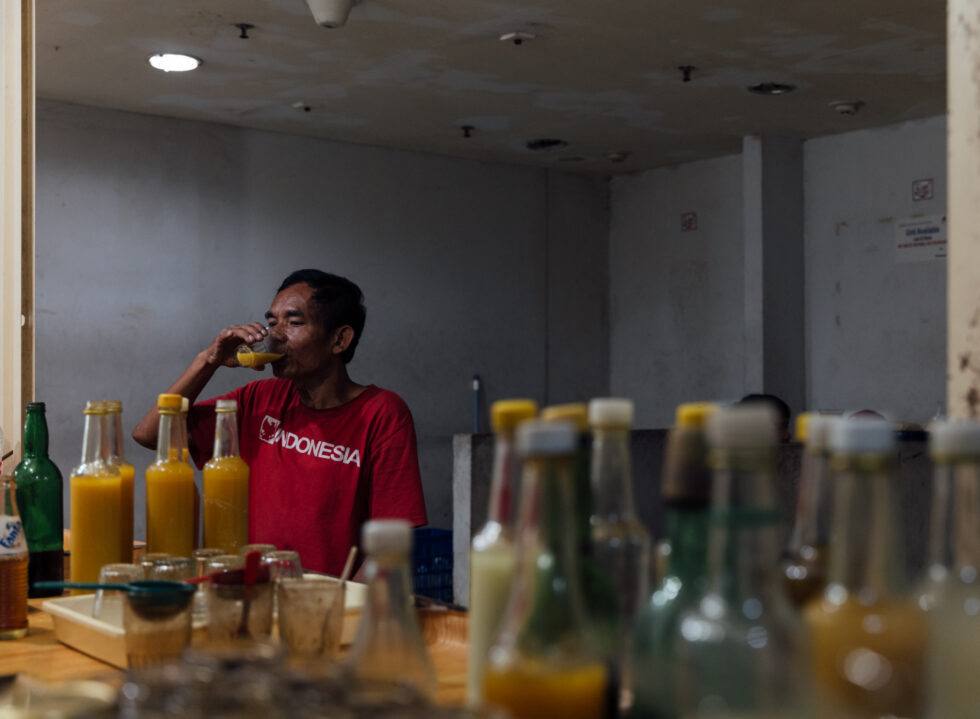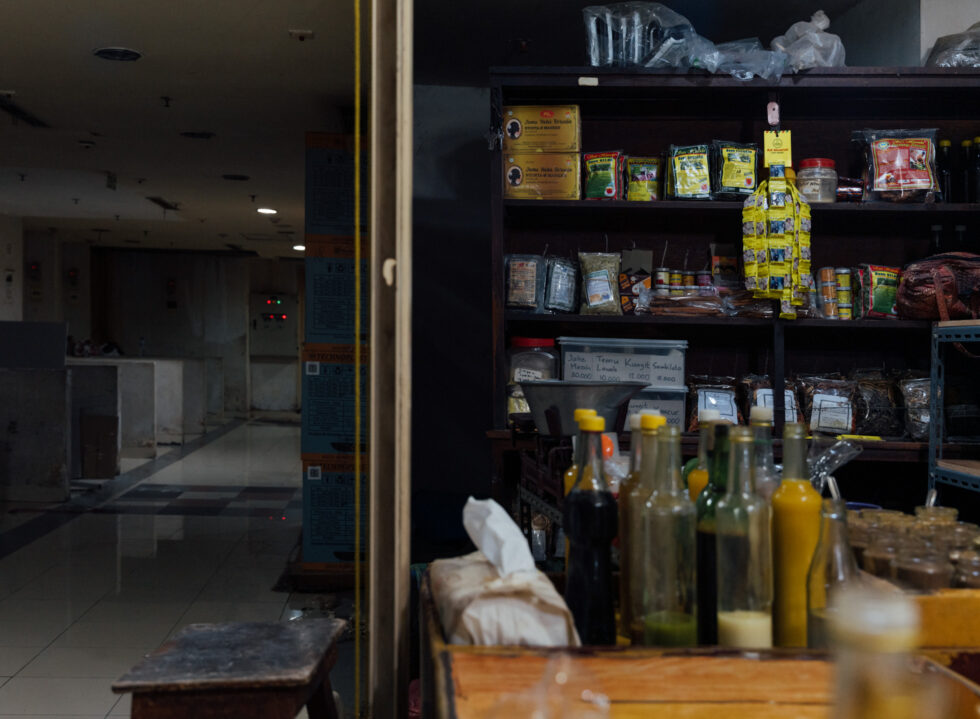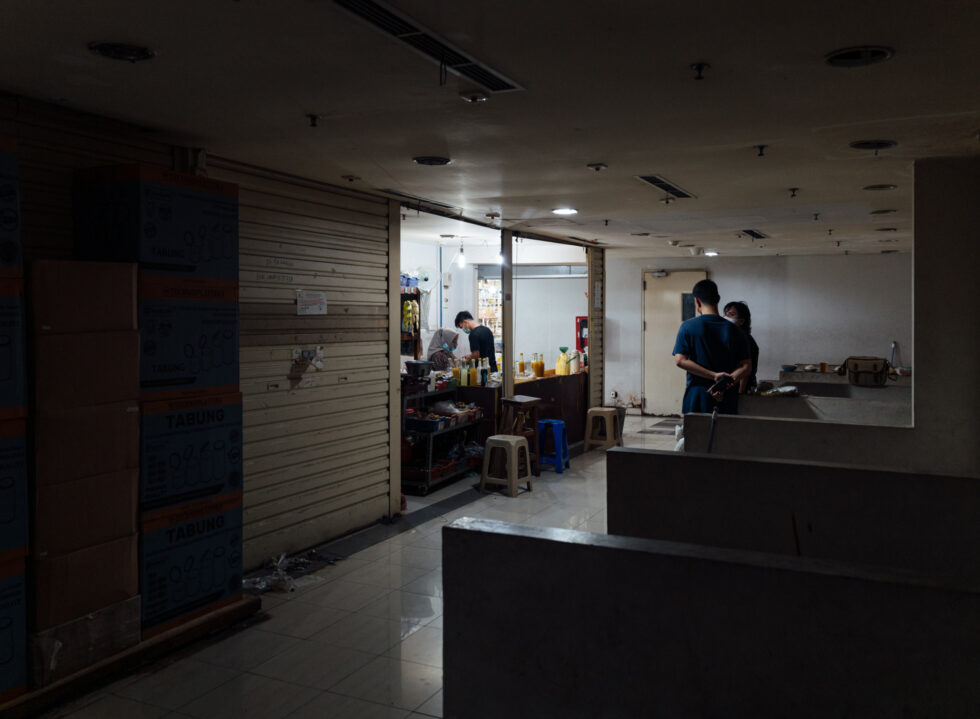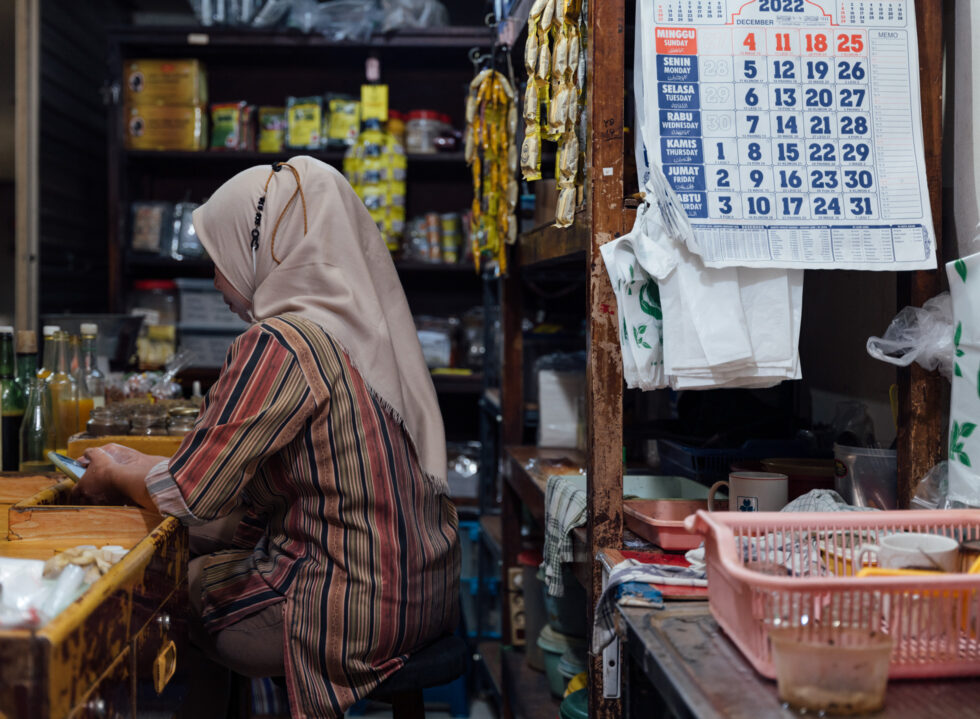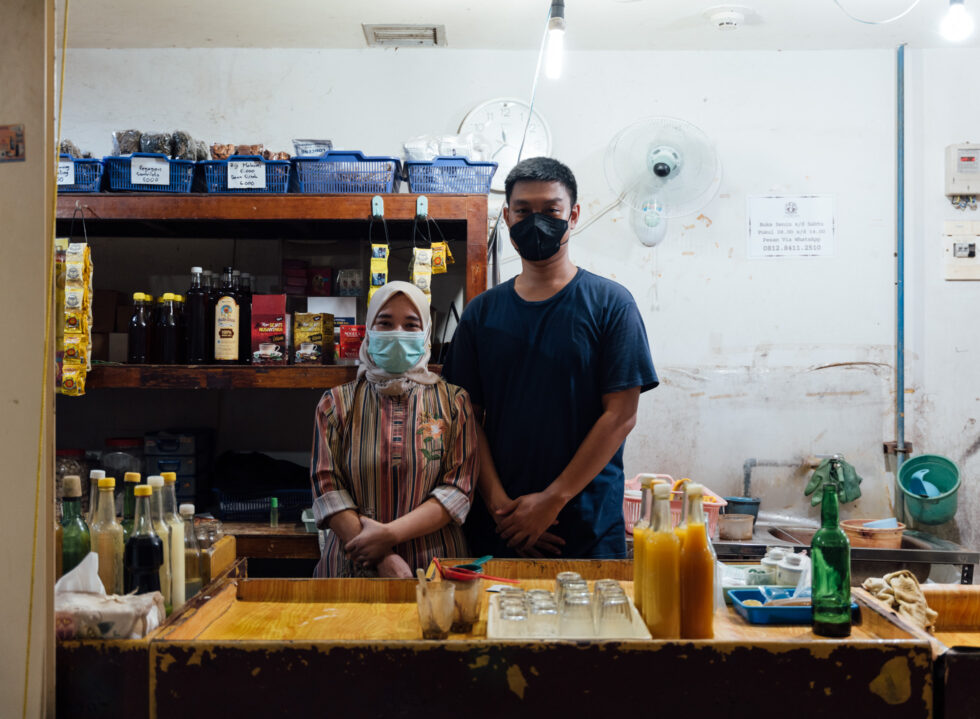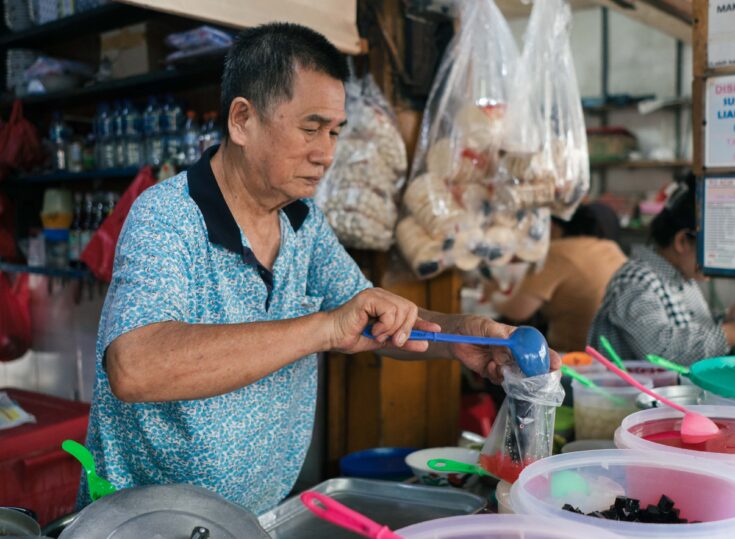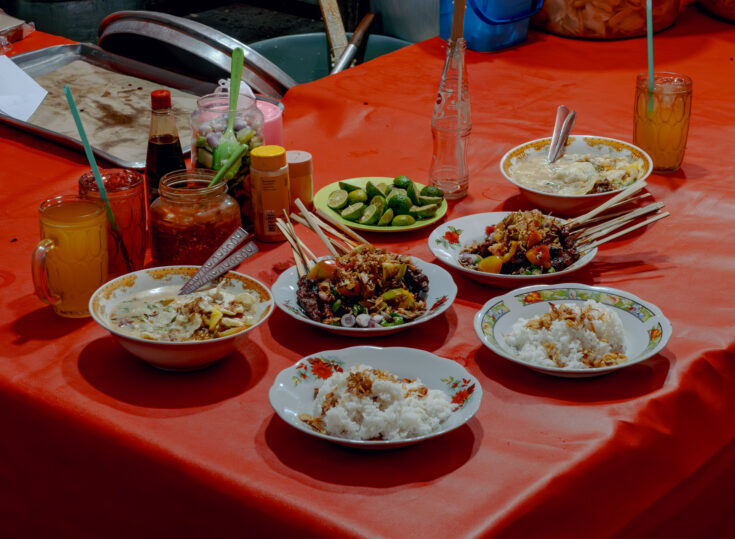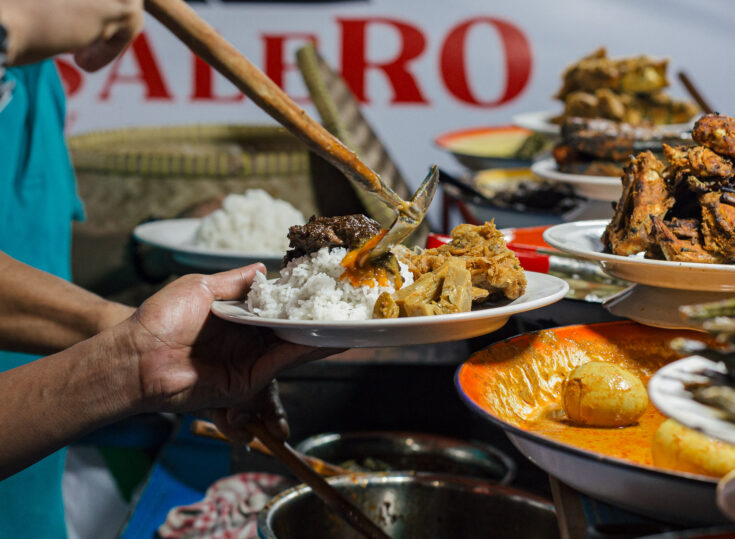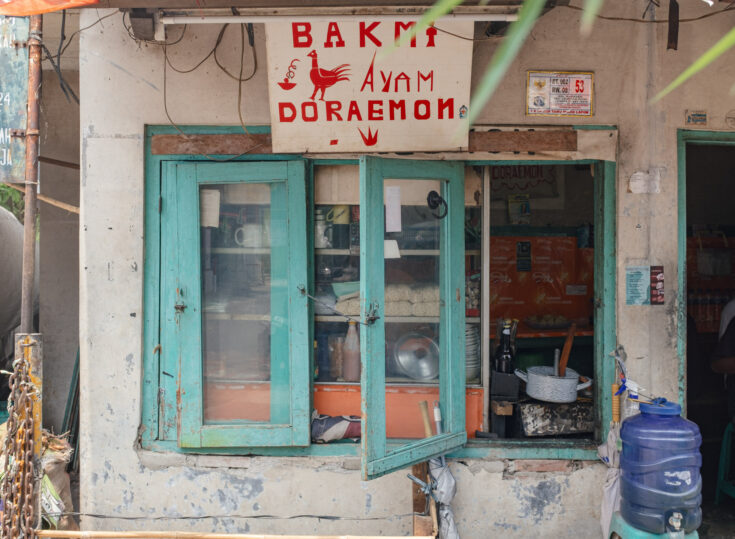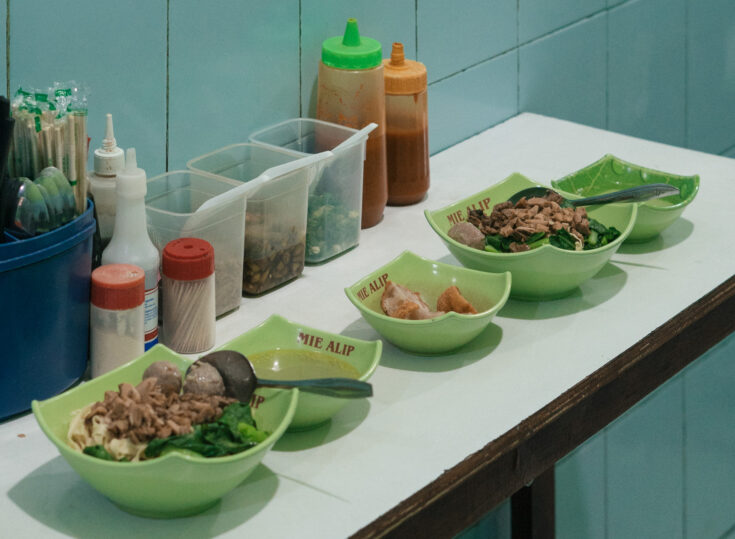Since the ‘50s, Pasar Mayestik has been a thriving hub of commerce with a reputation that continues to attract merchants from far-flung places into the city. The late Rubinem Hadisuwito—familiarly known as Ibu Hadi—was among those who joined the busy market in those early days, leaving her hometown Yogyakarta to bring over the trade she had learned and inherited from her mother: selling jamu, traditional herbal concoctions known for its medicinal properties.
Seven decades later, Toko Jamu Ibu Hadi (or Ibu Hadi’s Jamu Shop) has become one of the highlights of the twice-revamped Pasar Mayestik. To get there, find the stairs next to the mall’s south door (the one facing Kyai Maja street) and head down two levels to reach the store’s two-by-five metres room, unmissable thanks to the colourful jamu bottles and piles of spices on display.
When Ibu Hadi’s daughter-slash-successor Budi Susilowati is not around, her trusted staff Mujiati readily greets customers with a question about their health concerns from behind the counter. Based on the request, she would mix both powdered and hand-blended spices, which were prepared early every morning. All these are done with practised swiftness as if her hands move on muscle memory alone. Blink and you’d miss it—after quick pouring of different extracts followed by the clinking of spoon against glass, the jamu would already be on the counter, served alongside a small cup of sweetened lime juice to balance off the bitterness.
Addressing issues that range from high cholesterol and insomnia to body aches, blends here are specifically tailored to each customer—and they can be a bit uneasy on the palate. But if one is just looking for a tasty drink, going with the popular Beras Kencur (rice and aromatic ginger) and Kunyit Asem (turmeric and tamarind) is a good bet.
In addition to jamu drinks, the shop also offers dried and fresh ingredients like ginger, curcumin and turmeric, encouraging customers to try their hands at concocting their own blends at home. Spices are sourced from Yogyakarta and its surrounding areas, such as the famous Pasar Beringharjo in Malioboro or directly from the farmers themselves.
Nailing down the art of mixing up jamu takes years of practice, and those in charge at Toko Jamu Ibu Hadi, including Mujiati, have been at it for decades. “You need to get the ‘feel’ of things to be able to adjust the drink to each customer. The quality of ingredients would also vary with the seasons, and that’s another thing to consider when making jamu,” explained Aditiar Kamandahu, grandson to Ibu Hadi.
Over the years, returning customers from nearby merchants and football players to nursing mothers can often be found at Ibu Hadi’s humble shop, where each one comes with their own concerns and ailments trusting the healing properties of her jamu. Clinically tested or not, Toko Jamu Ibu Hadi’s lasting legacy is a nod to the country’s long-standing and inextricable connection with the herbal drink—an enduring tradition that remains resilient against the flow of change in this fast-paced city.
